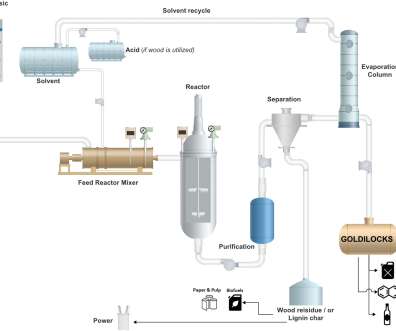ORNL-led team uses carbon material derived from tire waste to convert used cooking oil to biofuel
Green Car Congress
AUGUST 21, 2017
Using a novel, reusable carbon material derived from old rubber tires, an Oak Ridge National Laboratory (ORNL)-led research team has developed a simple method to convert used cooking oil into biofuel. The patent-pending, waste oil-to-biofuel conversion adds a new approach to waste tire recycling initiatives. Resources.
























Let's personalize your content